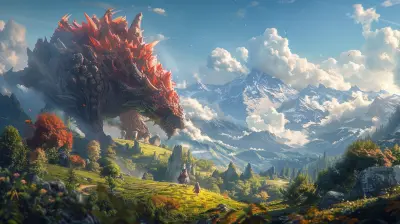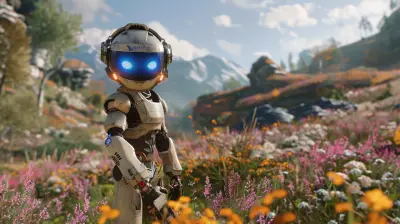Why the “Chosen One” Trope Still Works in Fantasy Games
29 June 2025
Ah, the “Chosen One” trope. Love it or hate it, you’ve probably encountered it more times than you've had to spam the A button to skip dialogue. It’s that classic setup where ordinary ol’ you—or at least your character—is suddenly thrust into the spotlight as the one and only savior destined to defeat the Big Bad, save the world, or stop the sky from falling (sometimes all three). From wielding ancient swords to awakening dormant powers, it’s a tried-and-true storytelling device that just won’t quit. But why does it still work so well in fantasy games?
Let’s grab our enchanted staffs, summon some caffeine, and dive deep into why this trope keeps us coming back for more, even after all these years. Spoiler alert: It’s not because developers are out of ideas (well, not always).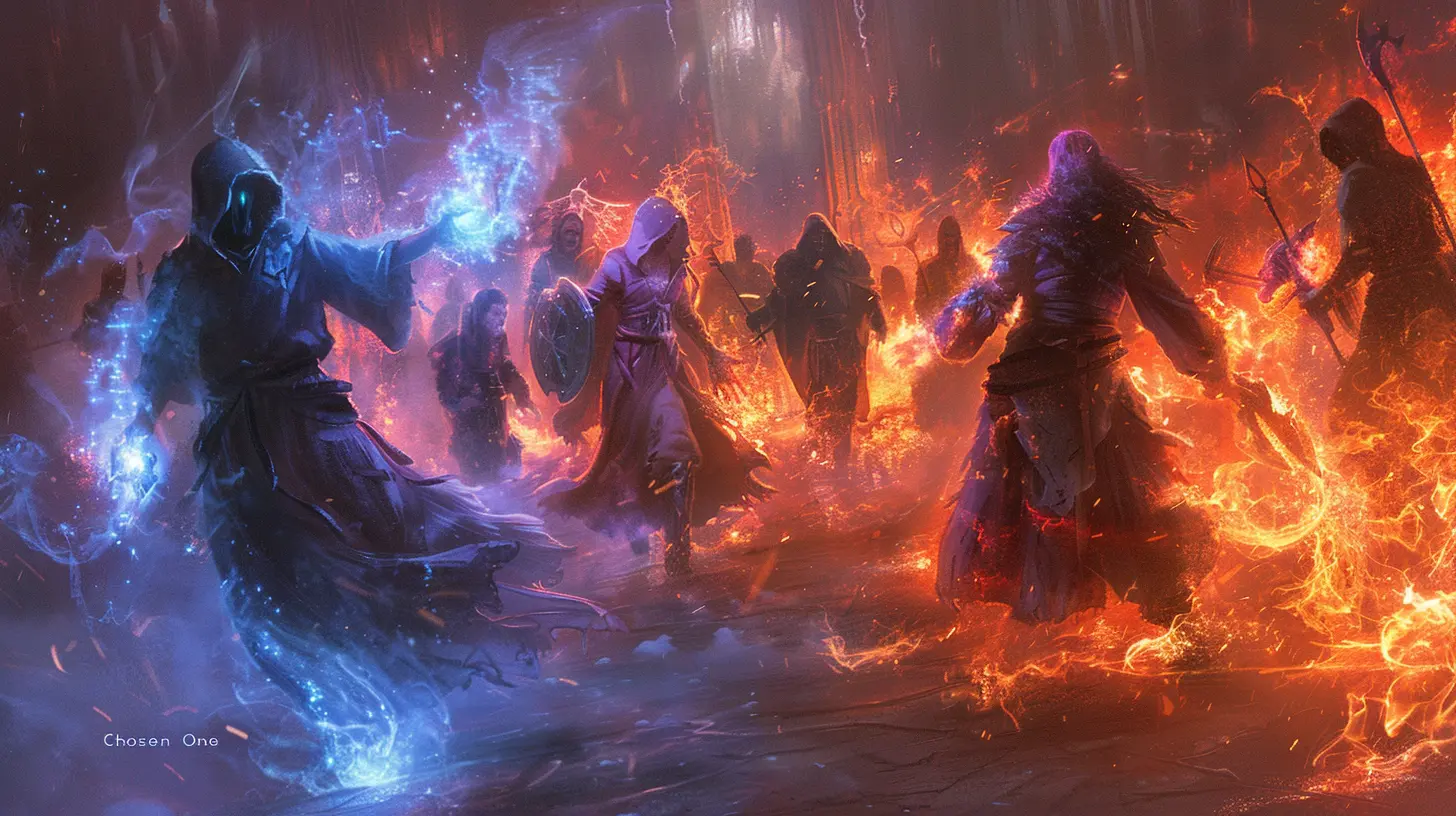
The Power of a Good Origin Story
Let’s be real—everyone loves an underdog story. There’s something deeply satisfying about watching a nobody rise to greatness. Maybe it’s because we all secretly imagine that, if given the chance, we’d rise to the occasion too. (You’re telling me I’m the one destined to save the land? Say no more—I’ll be packing my potions and snacks!)Fantasy games embrace this idea wholeheartedly. They let us live out that fantasy of being “special” even if, in real life, we’re just trying to figure out how taxes work. Look at classics like The Legend of Zelda or Final Fantasy. Link? Just some kid living in a sleepy village until destiny comes knocking. Cloud Strife? Pretty much a SOLDIER wannabe with some identity issues until the plot thickens.
By making your character “chosen,” the game pulls you into this rags-to-riches (or rags-to-hero) narrative. It’s personal. And hey, we all secretly want to feel like we’re one-of-a-kind, don’t we? Admit it.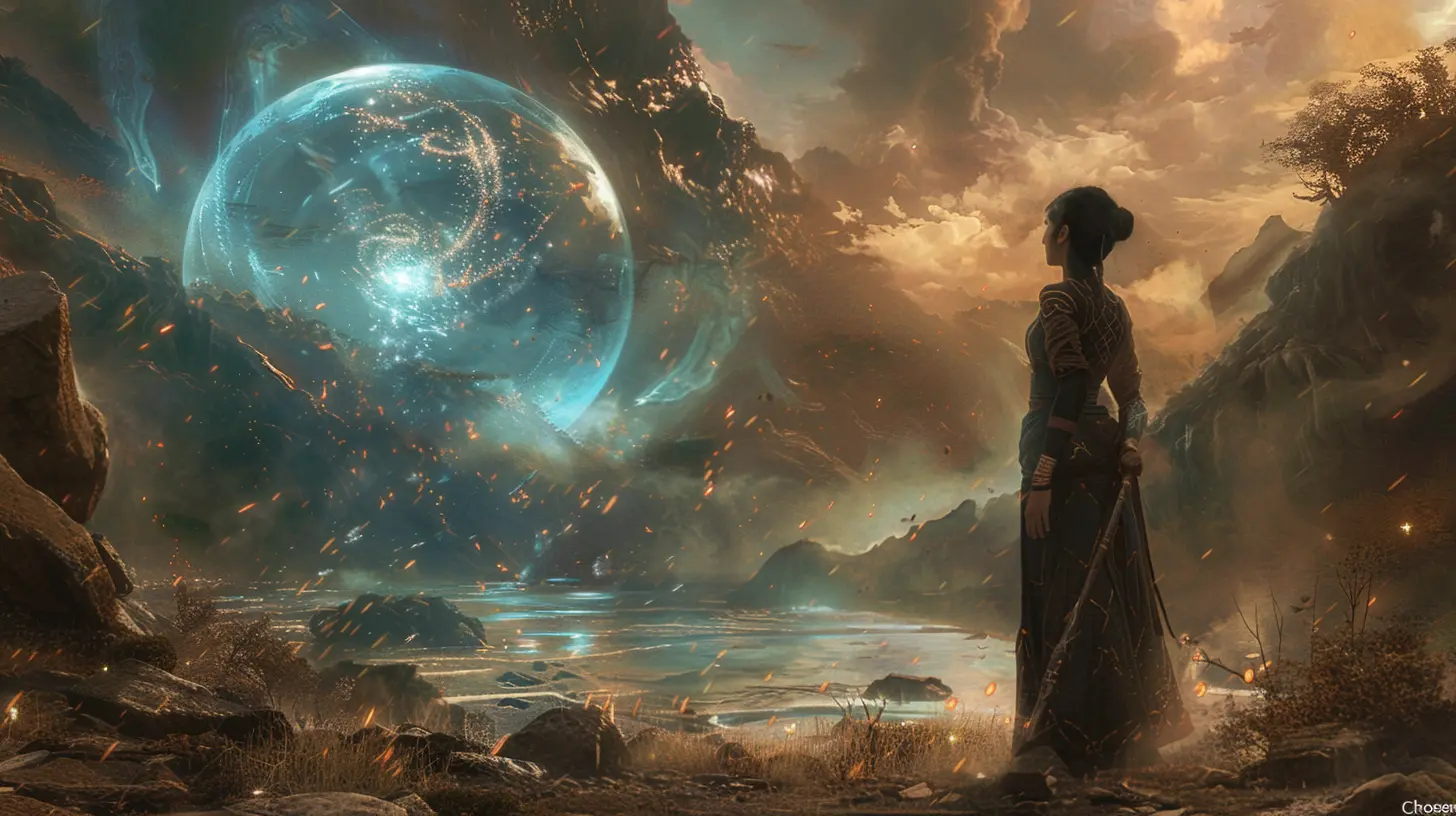
Instant Stakes: The World Is Counting on You
Being chosen isn’t just about feeling special—it creates an instant sense of responsibility. The world (or galaxy, or multiverse) doesn’t need someone who might get the job done. It needs you. Right now. No pressure or anything, but if you mess up, expect literal fire and brimstone.This narrative device raises the stakes like a high-level boss fight. Sure, you’re running around collecting mushrooms or unlocking ancient relics, but there’s always that looming sense of, “If I botch this, everyone’s doomed.” It keeps the story engaging. Would you really feel that same drive to succeed if you were just Bob the Average Farmer, swept up in someone else’s quest? Probably not.
And it’s not just about saving the world—it’s about growing into someone worthy of saving it. The trope adds layers to the gameplay, often tying your character’s growth (skills, level-ups, gear upgrades) to the fulfillment of your destiny. You’re not just grinding for XP; you’re grinding because fate demands it. Pretty motivating, right?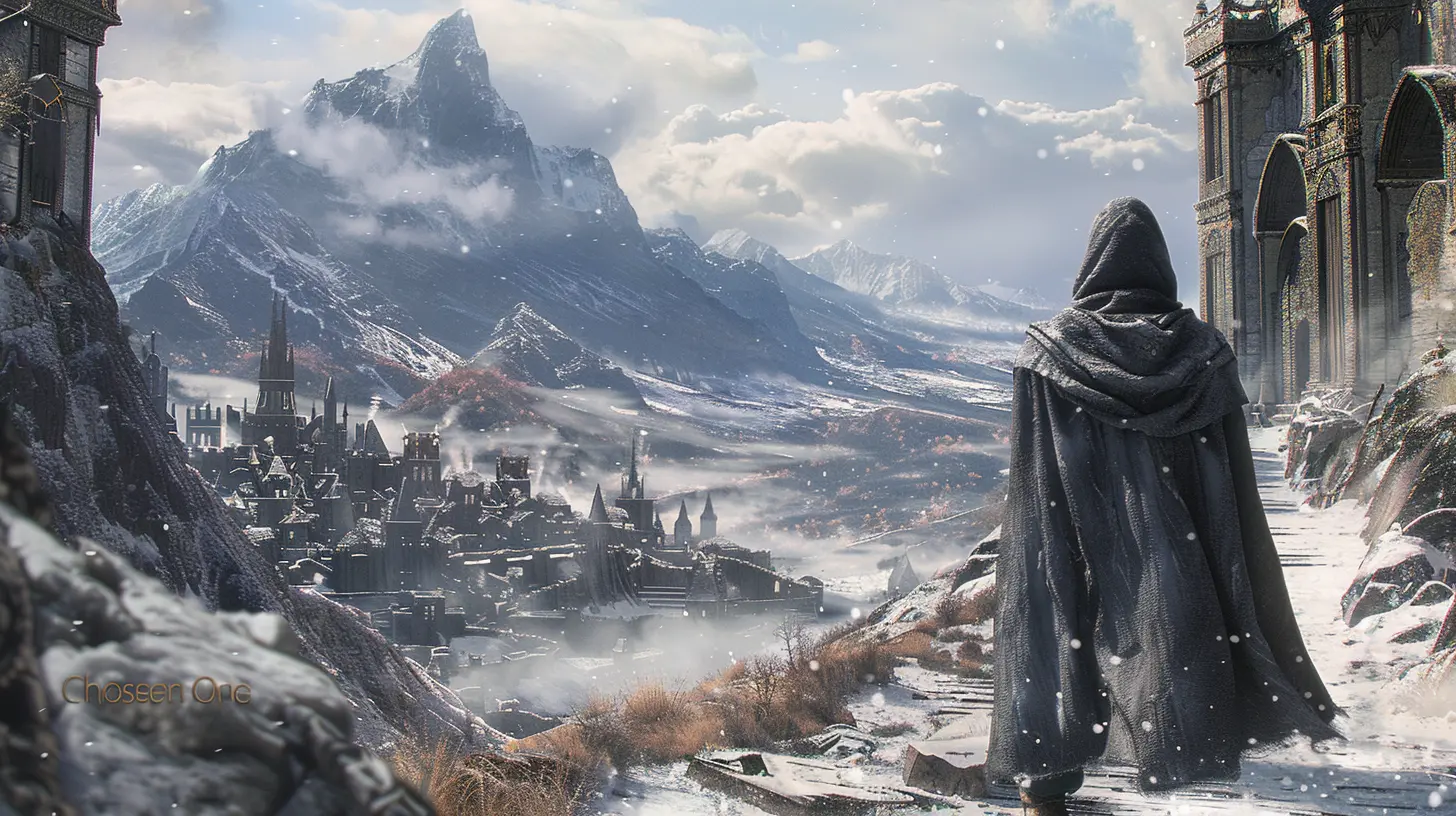
Playing Into the Power Fantasy
Let’s talk about the elephant in the room: power fantasies. Fantasy games aren’t exactly subtle about letting players feel like unstoppable badasses (and, honestly? That’s why we love them). The “Chosen One” concept is perfect for feeding this craving.Think about it—would epic spells, legendary swords, and god-tier abilities feel as satisfying if you weren’t the one destined to wield them? Of course not! Knowing that only YOU can equip Excalibur or cast the Meteor spell because you carry some ancient prophecy or royal bloodline makes every victory feel that much sweeter. It’s like being handed VIP access to a concert, except instead of watching the band, you’re smiting dragons and bending reality to your will.
The trope also lets games drip-feed power to you in a way that feels earned. You might start as a nobody who struggles to kill a rat in the tutorial, but by the end, you’re unleashing screen-clearing attacks that could make Thanos feel inadequate. And it’s all because you were chosen. Admit it—a little part of you is puffing your chest with pride right now, huh?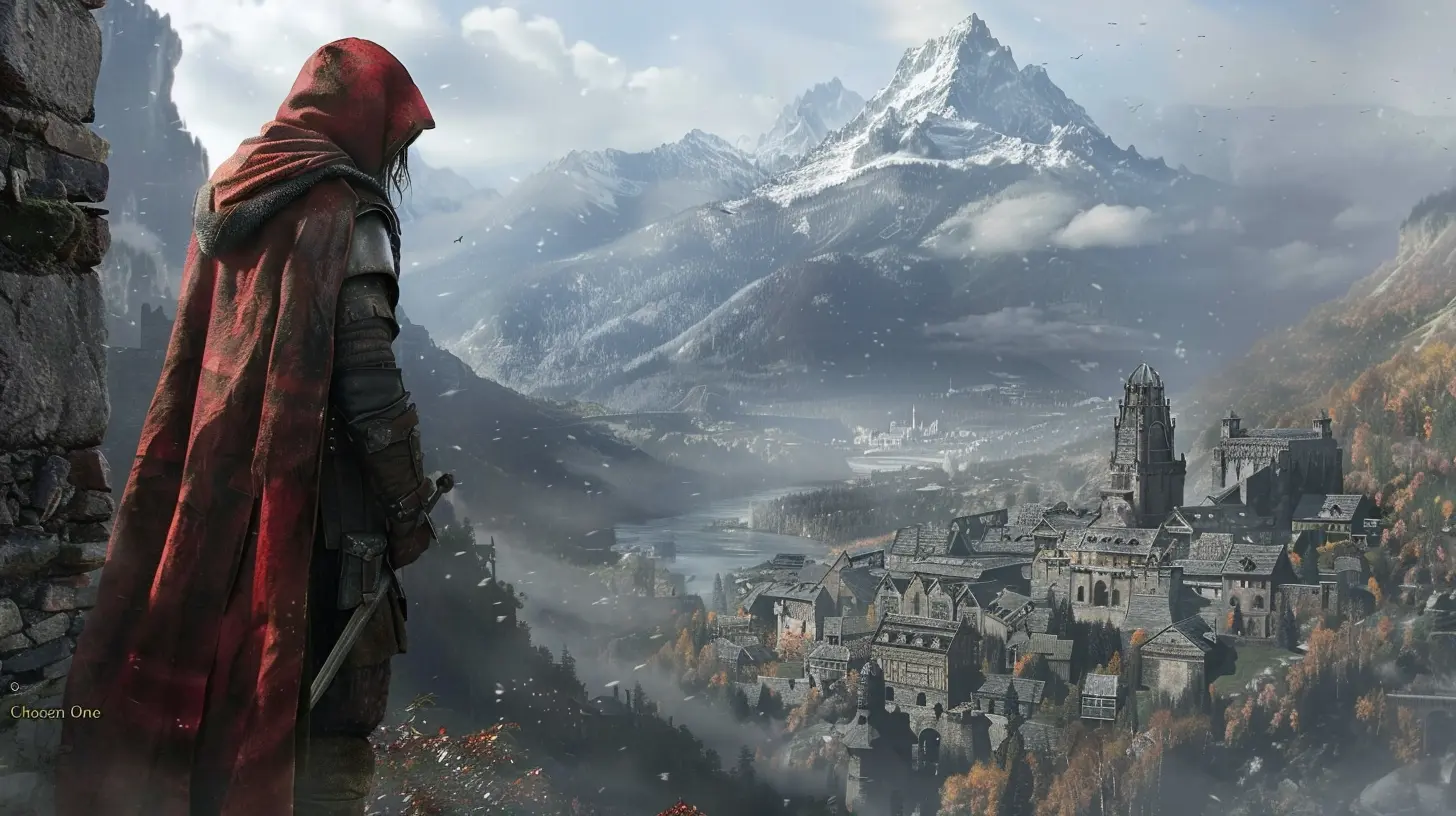
It’s Relatable... In a Weird Way
Okay, hear me out. While most of us probably won’t stumble upon a magical artifact that declares us the Savior of the Realm (though, fingers crossed), the core of the “Chosen One” story is surprisingly relatable. We’ve all had moments where we’ve been thrust into situations where the odds seemed stacked against us. Maybe it was a group project where everyone bailed, or that time your boss picked you to lead a big presentation. Did you feel ready? Probably not. Did you rise to the occasion? Heck yeah, you did.Fantasy games play on this universal experience of self-doubt and resilience. Sure, the stakes are a bit... exaggerated (unless your last group project involved fighting orcs), but the emotional journey is the same. There’s a reason we resonate with the “Chosen One” arc—it mirrors the highs and lows of our own lives, just with way cooler outfits.
“Chosen One” = Built-In World Building
Fantasy games thrive on rich, immersive worlds. And guess what? The “Chosen One” trope is basically a narrative shortcut for world-building.Think about it: if you’re chosen, it means there’s something special about the world that chose you. Maybe there’s an ancient prophecy, a sacred bloodline, or a divine being pulling the strings. Whatever the case, the game now has a reason to tell you all about its history, lore, and mythology. It’s not just random trivia—it’s your destiny. That gives the world more depth and makes your actions feel meaningful.
For example, in Dragon Age: Origins, being the Grey Warden automatically ties you to the world’s darkspawn problem, the Wardens’ history, and the Blight. You get spoon-fed lore not because the game wants to flex its writing muscles (okay, maybe a little), but because you’re central to it all. It’s like the ultimate backstage pass.
Familiar, But Flexible
Here’s a fun fact: the “Chosen One” trope isn’t as rigid as it seems. Over the years, developers have found clever ways to tweak and subvert it, keeping it fresh without abandoning the core appeal.Take The Witcher series. Technically, Geralt isn’t a “Chosen One” in the traditional sense—he’s more of a reluctant hero. But in Wild Hunt, Ciri becomes the target of a prophecy, and her role as the “Chosen One” drives much of the narrative. You get both sides of the coin: the reluctant badass AND the prophetic savior.
Or consider Mass Effect. Shepard might not start as the “Chosen One,” but by the end, they’re the galaxy’s last hope. Was it fate? Skill? Luck? A bit of all three? By blending the trope with player choice and moral ambiguity, the series keeps things fresh while still scratching that “destined hero” itch.
Because It’s FUN, Okay?
Let’s not overthink it—sometimes, the “Chosen One” trope works simply because it’s fun. It’s escapism at its finest. Who doesn’t want to pretend they’re the center of the universe every once in a while?Fantasy games are supposed to transport us to worlds where magic exists, evil can be vanquished, and we matter. And the “Chosen One” trope delivers that in spades. Sure, it might feel a bit predictable at times, but honestly? When you’re riding a dragon into battle or hurling fireballs the size of cars, does it really matter how you got there?
Final Thoughts
So, why does the “Chosen One” trope still work in fantasy games? Because it taps into something universal: our desire to be important, to face challenges head-on, and to triumph against all odds. It gives us a sense of purpose in a world filled with chaos (both in-game and IRL). And, most importantly, it’s a blast to play through.Will this trope ever go out of style? Maybe. But for now, as long as we’re still picking up controllers and keyboards, there will always be room for one more “Chosen One.” After all, who’s better suited to save the world than you?
all images in this post were generated using AI tools
Category:
Fantasy GamesAuthor:

Stephanie Abbott
Discussion
rate this article
2 comments
Tatianna McCartney
Empowering narrative, yet often predictable trope.
October 10, 2025 at 4:50 PM

Stephanie Abbott
Thank you for your feedback! While the "chosen one" trope may seem predictable, its enduring appeal lies in the universal themes of growth, sacrifice, and heroism that resonate with players.
Selah Thomas
While the 'Chosen One' trope may seem overplayed, its enduring appeal lies in our desire for hope and empowerment. In fantasy games, this archetype invites players to step into greatness, reminding us that anyone can rise against darkness—even if it's just with a controller.
July 10, 2025 at 4:51 PM

Stephanie Abbott
Absolutely! The 'Chosen One' trope resonates because it embodies hope and empowerment, allowing players to envision their potential to overcome challenges, even in a virtual world.

